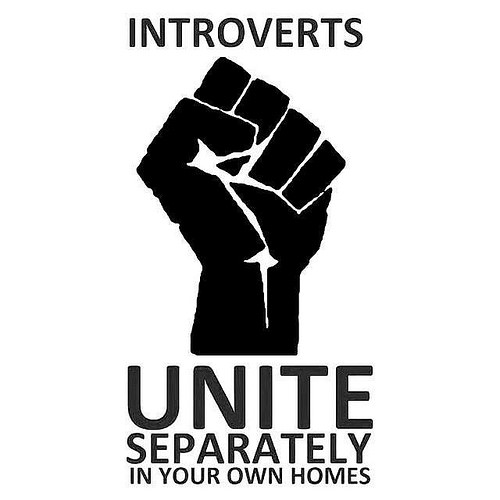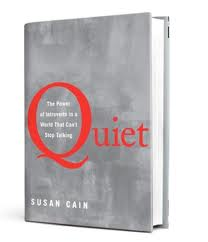Click here to return to Blog Post Intro
Susan Cain’s book starts by describing the “Extrovert Ideal”, noting that talkative people are often rated as smarter, better looking, more interesting, and more desirable as friends than their less talkative counterparts. Since my wife is an extrovert, I agree with all of that!
How did our “ideal” evolve this way? In 1899, there was a manual on Character: The Grandest Thing in the World. By 1920, popular self-help guides changed their focus from inner virtue to outer charm—“to know what to say and how to say it”. Dale Carnegie—a developer of famous courses in self-improvement, salesmanship, corporate training, public speaking, and interpersonal skills and author of How to Win Friends and Influence People (1936)—led the revolution from a focus on character to a focus on personality.
Now, we look for “charismatic leadership” and tend to think that becoming more extroverted not only makes us more successful but also makes us better people. Cain counters that notion. She says, “If we assume that quiet and loud people have roughly the same number of good (and bad) ideas, then we should worry if the louder and more forceful people always carry the day.” In fact, studies in group dynamics suggest a lot of bad ideas prevail while good ones get squashed.
Generally speaking, introverts are less inclined to charge ahead—which hedges against risk and pays off on intellectual tasks. Therefore, when it comes time to make group decisions, extroverts would do well to listen to introverts—especially when they see problems ahead. On many kinds of tasks, especially those performed under time or social pressure or involving multitasking, extroverts often perform better, largely because extroverts are better than introverts at handling information overload. It’s as if extroverts are seeing “what is” while introverts are asking “what if”. Healthy organizations would do well to learn that they need a good balance between action and reflection.

photo credit: One Way Stock Hello My Name Is Introvert via photopin (license)
As a result, we should actively seek out symbiotic introvert-extrovert relationships, in which leadership and other tasks are divided according to people’s natural strengths and temperaments. The most effective teams are composed of a healthy mix of introverts and extroverts, studies show, and so are many leadership structures.
How about individuals? In an article titled “Release Your Inner Extrovert”, Jack Welch (Chairman and CEO for GE from 1981-2001) called for introverts to act more extroverted on the job. Susan Cain responded by suggesting that extroverts need to act more introverted too…to which Welch responded, “the extroverts would argue that they never heard from the introverts.” So, introverts like me shouldn’t just “be loud”—that doesn’t work for us. But we do need to trust our gut and share our ideas as powerfully as we can!
Further emphasizing that leadership is less about personality, Peter Drucker once said, “Among the most effective leaders I have encountered and worked with in half a century, some locked themselves into their office and others were ultra-gregarious. Some were quick and impulsive, while others studied the situation and took forever to come to a decision… The one and only personality trait the effective ones I have encountered did have in common was something they did not have: they had little or no ‘charisma’ and little use either for the term or what it signifies.”
We should keep in mind that we can stretch our personalities, but only up to a point. Our inborn temperaments influence us, regardless of the lives we lead. For example, Bill Gates is never going to be Bill Clinton, no matter how much he polishes his social skills. In the same way, Bill Clinton can never be Bill Gates, no matter how much time he spends alone with a computer.

photo credit: JoeInSouthernCA Introverts Unite! via photopin (license)
As an “out of this world leader”, remember that as much as one-half of your team is probably introverted, whether they appear that way or not. So, think twice about how you design your organization’s office space. Don’t expect introverts to get jazzed up about open office plans or lunchtime birthday parties or team-building retreats. And make the most of introverts’ strengths—to think deeply, strategize, and solve complex problems. If you’re looking for creativity and innovation, ask your employees to solve problems alone before sharing their ideas with the team. Gather ideas electronically or in writing and make sure people can’t see each other’s ideas until everyone’s had a chance to contribute. And don’t mistake assertiveness or eloquence for good ideas.
Susan Cain starts her book with her desired outcome for readers, which is a nice summary for leaders, “If there is only one insight you take away from this book, I hope it’s a newfound sense of entitlement to be yourself.”
May you be true to yourself…your personality…your strengths…as you shoot for the stars!


